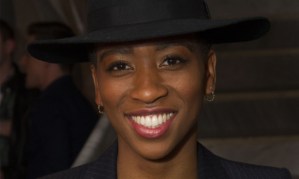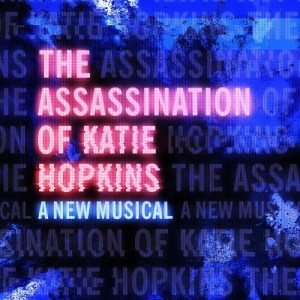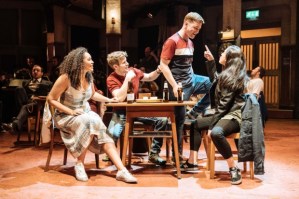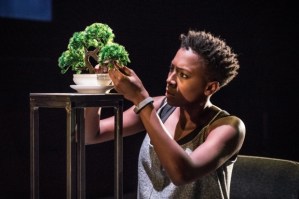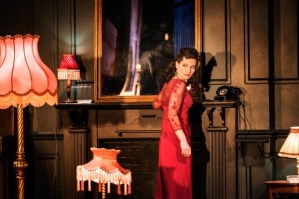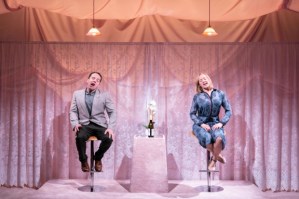Review: The Assassination of Katie Hopkins (Theatr Clwyd)
Chris Bush and Matt Winkworth’s musical receives its world premiere in Mold
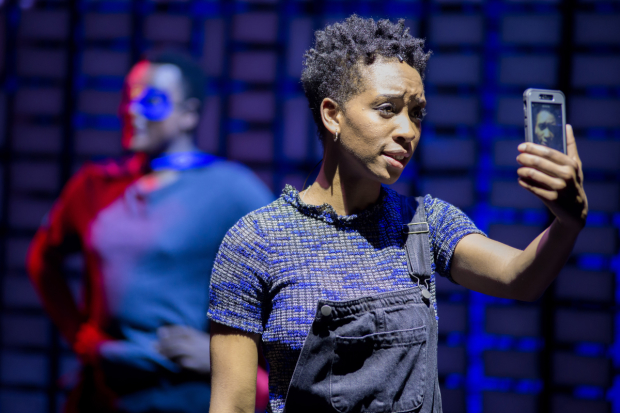
© Sam Taylor
There is nothing accidental about the provocative title of Theatr Clwyd's new musical. Much like the titular personality herself The Assassination of Katie Hopkins courted controversy as soon as it was announced, divided between those who were up in arms and those who appreciated the sentiment. The attention garnered has presumably been more than the creative team could have hoped for. A mobile LCD screen sits outside the venue defending Ms Hopkins, its owners seemingly unaware that the performance inside the venue isn't actually attacking her.
Katie Hopkins' fictional murder is merely the catalyst for a satire on the media circus now part of daily life. Set just a few months in the future, it follows two women searching for justice in the immediate aftermath of Hopkins' death. Humanitarian charity worker Kayleigh wants Katie to be remembered for her positive attributes and not her poisonous media representation; while rookie human rights lawyer Shayma is far busier fighting a case for twelve migrant workers who died on the same day. One tragedy dominates the media and the other is barely covered at all, both women fighting their corners in the face of an uncivilised and still-misogynistic media industry.
Writer Chris Bush demonstrates an astute understanding of the media environment. The majority of the story plays out through news reports, social media feeds and YouTube clips, all of which get played on a giant screen at the back of the stage. It's aesthetically impressive, for sure, but its over-use in the first half takes too much attention away from the ensemble. It's when it's used more sparingly in the second act that, in particular, leads Maimuna Memon (Shayma) and Bethzienna Williams (Kayleigh) come into their own.
Bush's grasp of the songs is less impressive. It's a solid score, all well-produced by Matt Winkworth and performed by the cast, but it lacks a strong, memorable number. The use of synths adds a pulsating quality to the music, but the best songs are certainly the more traditionally composed one. Memon and Williams' reprise towards the end of the show (no track listing at time of writing) is by far the standout, and actually feels like the perfect place to end proceedings. Instead, the show continues to teeter on for a while longer, an example of where art perhaps shouldn't have imitated life.
The Assassination of Katie Hopkins dares the audience to think twice about their own moral judgements and consider opposing views. Hopkins herself has publicly decried the production as being leftist propaganda whereas, in fact, she is portrayed far more sympathetically than one might imagine. It may just be a solid piece of musical theatre, but The Assassination of Katie Hopkins will be remembered as provoking conversation and sparking debate. Art imitates life.


